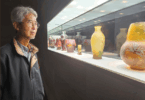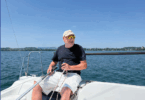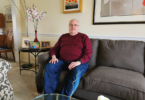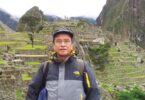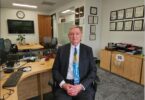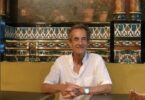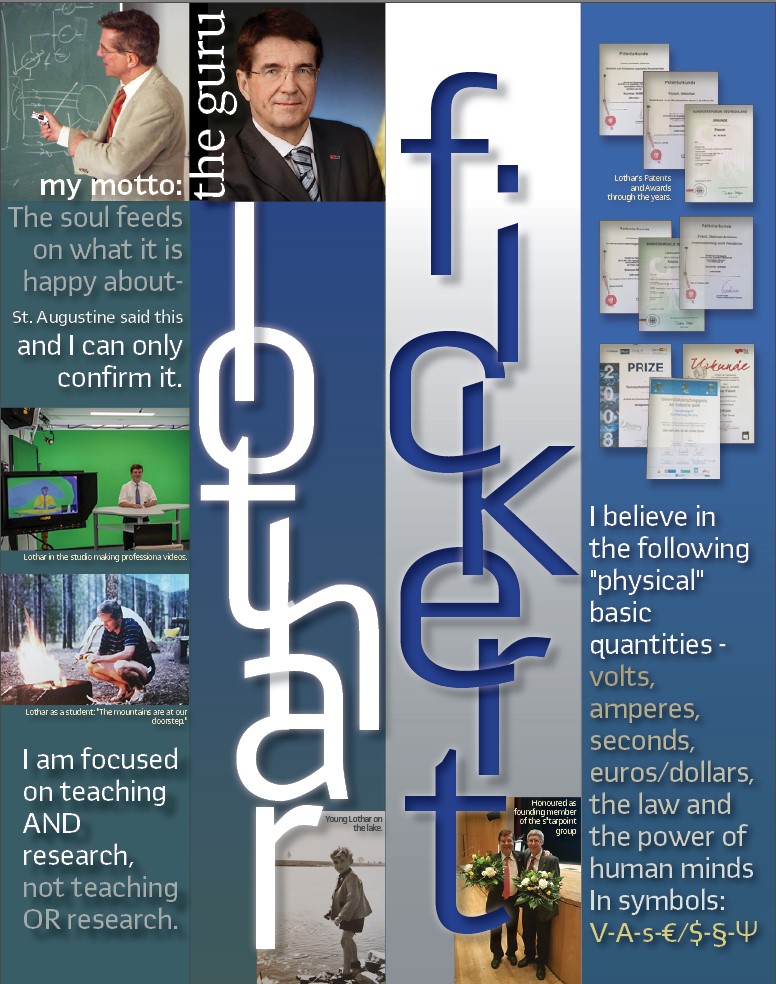
Interview with PAC World guru Lothar Fickert
PAC World: When and where were you born?
L.F.: My cradle was in Lower Saxony, where I was born on 13 January 1949. Unfortunately, my father died very early, when I was only 14 months old, and my mother raised me alone in the spirit of the humanistic family tradition.
PAC World: Where did you grow up and where did you go to school?
L.F.: I spent the first years of my life in a very small town called Bodenwerder, which the readers might know from the stories of baron of Munchhausen, who lived there in the 18th century. But I can reassure you: even though our cradles were only 400 m. apart, I never flew – as he made his listeners believe – on a cannonball and I never became a “lie baron.”
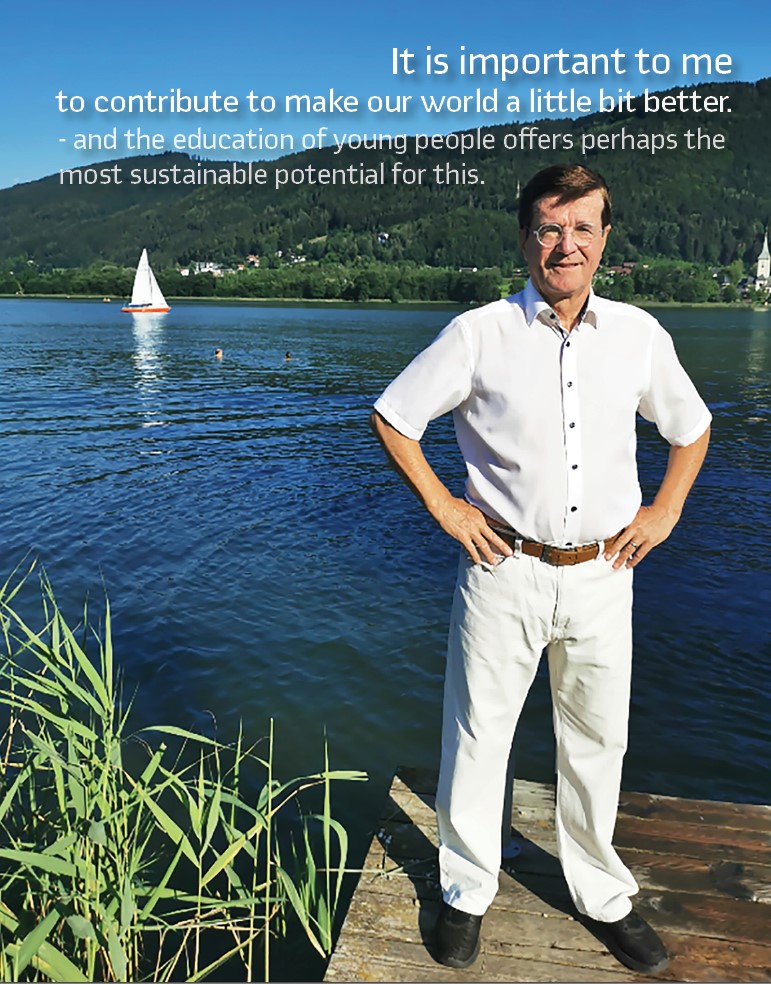
PAC World: Did you have any specific interests while in school?
L.F: Yes, I have always been interested in animals: At home there were always some aquariums, and sometimes I had to bring back the escaped newts in the bathroom … and my wonderful mother tolerated that nearly all the time! The highlight were my two crocodiles, which were living in the school aquarium. It was my job to look after them. The first crocodile by the name of “Emil” was tame, so I could stick my fingers in its mouth and it always let go of it.
The second crocodile, however, … I could never teach the second crocodile this trick, and since then I have scars from crocodile bites on my hands – and this before I even went to Australia!
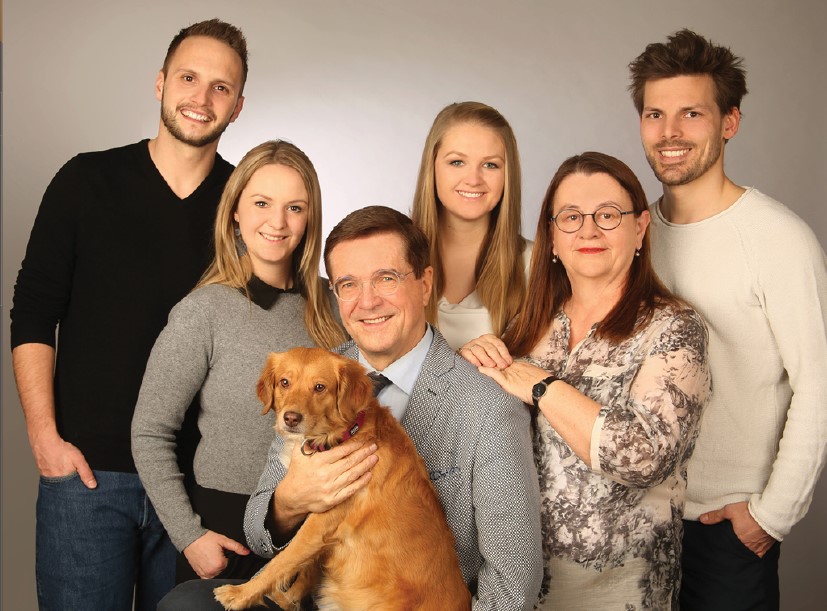
PAC World: Can you think of someone or something in your childhood that influenced your decision to become an engineer?
L.F.: Yes, I can. Our teacher, Mr. Rudolf Schafer, was an engineer himself and also taught us mathematics and physics. Under the official pretext of re-labeling our collection of physics equipment, he gave me the freedom to experiment with these devices – this was perhaps the beginning of my career as an engineer?!
PAC World: Where did you go to university and why did you choose that particular one?
L.F.: Because my mother’s financial circumstances as a widow at the post-world war time (and that meant my own) were very tight and since there was no university close to us, we could not afford two residences. So, we moved together to Vienna after graduation from high school and there I studied electrical engineering at the Technical University of Vienna because of its good reputation.
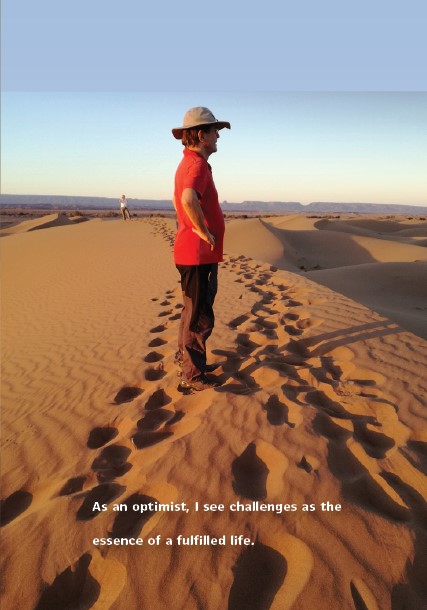
PAC World: Why did you study electrical engineering?
L.F.: Good question! Why electrical engineering?
If I had studied only according to my interests, I would have chosen the following subjects (in that order): mathematics – Latin – religion. For me, mathematics and Latin stand for precision and superordinate connections.
As for religion: I am convinced that there are essential connections and interrelations in this world and the cosmos which are beyond our perception, and which we should recognize and acknowledge.
However, if one studies these three subjects and wants to make a living from it, the profile of the high school teacher emerges. Although today I am a teacher of conviction and enthusiasm, when I was 18 years old, I had the desire to go “into the big wide world” and make a big difference out there.
As I am also very fond of travelling and outdoor activities, my first choice was to become a geodesist. From that choice, however, I was quickly dissuaded by an uncle: he asked me to choose a profession that would challenge me during my entire life.
So: the target was practice and theory on a high level with a very great mathematical depth – and so I decided to study communications engineering. However, later on, due to the job offers, I joined a large Austrian group (ELIN UNION,) which produces and supplies equipment and complete plants in the field of electrical power engineering on an international scale. And as we all know, Maxwell’s equations are valid in the milliampere range as well as in the kiloampere range, and due to the well-founded basic education of the technical university of Vienna, it was easy for me to gain a foothold in electrical power engineering.
As ELIN UNION carried out many export projects at that time, it was necessary for me as a protection engineer to become acquainted with protection philosophies and protection devices that work according to the Anglo-American protection principles, such as overcurrent protection devices according to the IDMT principle. So my first protection training was with GEC (UK) in Stafford.
PAC World: Why did you decide to continue your education after you became an engineer?
L.F.: Simply because I do not want to stand still and because I have experienced how satisfying it is to have successfully solved a new difficult task. That means lifelong learning and being open to new things.
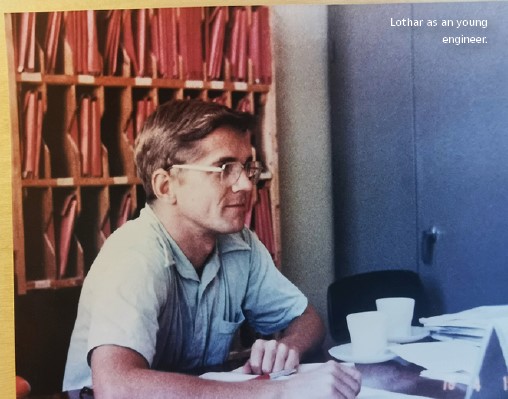
PAC World: You were studying in Vienna but working as a student in Brown Boveri in Switzerland. How did that happen?
L.F.: You know that I wanted to get to know the big wide world, and so a summer internship in Switzerland with Brown Boveri was the perfect opportunity. There I met patient and understanding trainers and got to know the industrial everyday life for the first time.
PAC World: Did you have any other interests than learning while at the Technical University in Vienna?
L.F.: Yes, of course! Even as a student I traveled much and often – once I even cycled from Vienna via Venice to Brindisi in southern Italy! And then, of course, we have beautiful mountains in Austria. So, mountain hiking, but also climbing and skiing in winter have always provided a balance to the “engineer’s life.”
If you live in Vienna, of course you live with the Viennese waltz: As a young man, in the winter season during the ball season I have opened many beautiful balls myself and very often I have been swinging my “dancing leg”: Waltz, polka, twist (yes, I’ve become so old!), but also Austrian folk dances have always given me a lot of pleasure. Still today I am an enthusiastic dancer – and my wife Mary also loves to do ballroom dancing!
PAC World: You started working as a commissioning engineer after shortly working at the university. What made you switch?
L.F.: Today I see the opportunity that was offered to me as a commissioning engineer as a godsend: after 8 years of profound and fascinating theoretical basic training at university, I got to know the practical implementation, one could almost say, first-hand – and these years living on construction sites gave me not only further professional training but also many, many personal encounters, which showed me again and again the colorfulness of the world. And besides that – what could be better than not only planning a protection concept, but also implementing it and experiencing its functionality: if I should express this sentimentally, many installations were “my babies.”
PAC World: Later you started working for Brown Boveri – a manufacturer. How did that happen?
L.F.: I think it is good to gain different experiences from different angles, especially at the beginning of one’s professional career. Hence the move from ELIN UNION as an Austrian company to Brown Boveri as an international, European group has contributed to my professional and personal development, not only in terms of technology, but also in terms of the diversity of my partners.
One day the opportunity for a change arose and I took it!
PAC World: Why did you go to work for a utility after another 5 years?
L.F: This change came at a time when there was a recession and utility investment was falling to a minimum. I could see my cost center’s turnover about to fall below profitability and it was only a matter of time before I would have been reorganized. And at that time, my future boss was looking for a successor for a later period, and he asked me if I wanted to join the Vienna Electricity Company. I said “YES”!
PAC World: What is the most challenging work that you have done while working for the industry?
L.F.: Let me put it this way: as an engineer, I believe in the following “physical” basic quantities – volts, amperes, seconds, euros/dollars, the law and the power of human minds. In symbols: V – A – s – €/$ – § – Ψ. The first of these three basic quantities, i.e. volts, amperes, seconds, are what we learn to handle competently in our training as engineers.
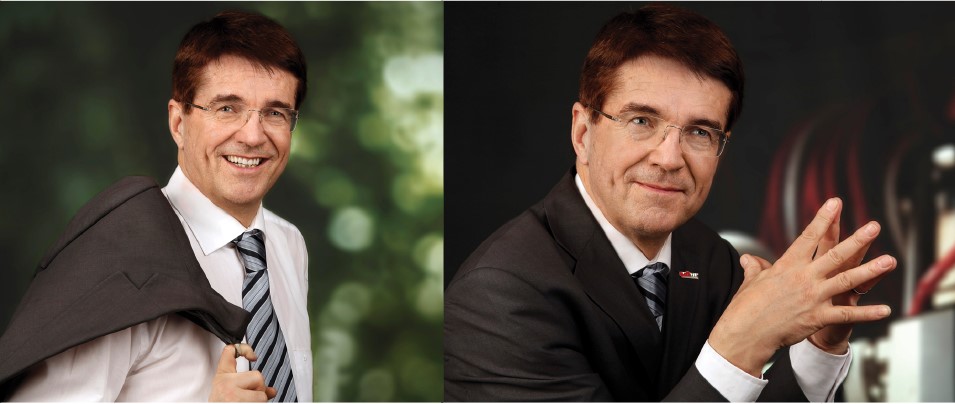
The fact that in electrical power engineering a permanently profitable economic activity is necessary, requires an alert observation and an alert mind. And as far as the last of these symbols Ψ, the human aspects, is concerned – yes, everyone keeps learning all their life. One of the most challenging minutes was when one day, due to frequent load shedding in the United Arab Emirates in the 1970’s, a tank stood in front of our power plant to “encourage” us to produce more power. I looked into the tank barrel, and the solution was no longer to be found in the kilowatt and megawatt hour range, but here it was diplomacy that saved our lives!
PAC World: And what is the most satisfying?
L.F.: It’s very simple: If everything works technically flawless, if people and the environment are safe and confronted with the least possible disruption, and if everyone involved in a project has a good feeling in their stomach, then I know that I have done something meaningful and made a contribution to improving our world. And this is satisfying to me.
PAC World: You spent about a quarter of a century before joining the Graz University of Technology. Why did you decide to become an academic?
L.F.: There’s a saying “stagnation is decline”- and when the opportunity arose for me to leave the utility service and go to a university at the age of 49, the time was ripe. It may sound a bit arrogant, but it is important for me that I can contribute something to make our world a little bit better – and the education of young people offers perhaps the most sustainable potential for this. Yes, beyond the middle of life to be a teacher, is wonderful!
PAC World: What is the impact from your industrial experience on your academic career?
L.F.: From the first month on, my utility colleagues started asking me questions as the new professor, for which they were looking for profound answers and solutions. If you look behind the scenes at many of these “problems,” you will find scientific research questions in many areas, which then you can expand in bachelor’s, master’s and doctoral theses. This means knowledge gains for all. And since these questions came from the area of real plant and grid operation, it was automatically ruled out that I would spend the rest of my life in an ivory tower.
Because I never wanted that!
PAC World: Are you more focused on teaching or research?
L.F.: Our university, Graz University of Technology, like many technical universities in Europe, has the model of research-led teaching. This means that a researcher, i.e. someone who is at the forefront of development, passes on his or her cutting-edge knowledge to the next generation or, conversely, that a teacher teaches content that is up-to-date and relevant.
Seen in this light, I am rather focused on teaching AND research, not teaching OR research, both in the sense that I have found a satisfactory symbiosis for myself and – I believe – for society and students.
PAC World: You have been at the university for more than 20 years. Are there any significant changes at a time when the industry is transitioning towards a smart digital grid?
L.F.: Allow me to let the professor speak: the electrical energy system, made up from passive elements such as lines, transformers etc. plus the electromechanical energy converters (generators) and electrical semiconductor inverters is passive itself, so that because of the eternal law of conservation of energy, the same energy that is consumed and withdrawn by the consumers must be converted and transported in de facto the same microsecond.
Here, the principle of the 3-phase rotating field and the electromagnetic coupling of the generators in connection with the power-frequency control has created a system that has been running stably for many decades, without any further exchange of information through additional channels. The system works even without ICT technology, and I consider this to be extremely smart. Some people therefore say: there is nothing better than a solidly constructed network made of copper, steel and concrete.
But that’s too short-sighted of a statement – the more information we have about the condition of the entire system, about our equipment and the load details, the better we can operate presently and expand our networks in the future.
However, I see the future rather in the sector coupling, i.e. the exchange and conversion of energy between electrical networks, gas networks and heating/cooling networks.
And this task means a strong and high performing smart digital grid.
PAC World: Are you working as a consultant to the industry and if “Yes”, what do you think are the benefits of academics working with utilities?
L.F.: In one sentence: Yes, from the heart and with conviction, a good “grounding” by solving real life problems as a consultant to the industry gives you – as the saying goes – both roots to maintain stability and wings to reach new horizons in term of university research.
PAC World: What do you think is the impact of IEC 61850 on the future of protection and control?
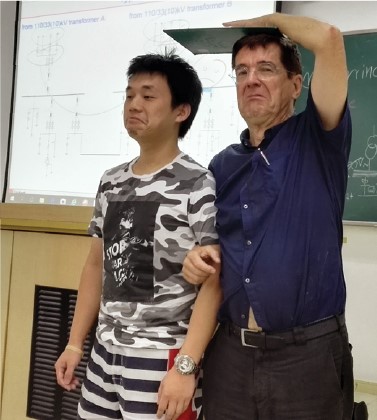
L.F.: IEC 61850 will significantly change the areas of protection and control in many sectors, provided that utilities staff change from a world of “black boxes” to a world of virtual devices with floating functionalities.
PAC World: What is the greatest challenge you faced during your professional career?
L.F.: As an optimist, I see challenges as the essence of a fulfilled life. I am happy to accompany and also (in my personal microscopic area of life) to advance the constant change while maintaining meaningful technical traditions. In concrete terms: Adding to the engineering knowledge the skill to motivate young and not so young people to acquire knowledge.
PAC World: What do you consider your greatest professional achievement?
L.F.: At the age of 50, I became a professor, and here, on the broad technical basis that I acquired as a development / commissioning engineer and later as an operations engineer, I was able, with the help of my colleagues, not only to promote the technical development, but also to implement what was most valuable to me:
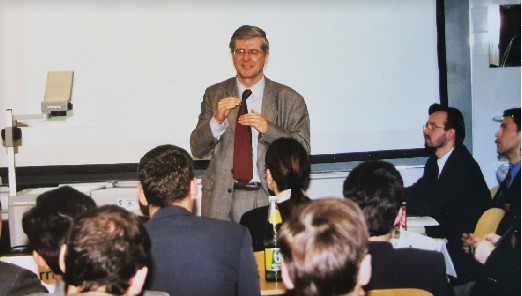
I trained young people and thus not only gave them a part of their livelihood for themselves (and later their families), but in my function as Dean of Studies I was also able to give people in difficult situations a perspective again.
PAC World: You have received different awards. Which one do you consider the most important to you?
L.F.: Good question! I’ve never hung up my awards or the patent certificates. That’s not my thing. But: if – which happens very often – my former students call me or I meet them at a conference, a project or simply on the street and they greet me joyfully and tell me about their activities, yes, then I feel honored.
PAC World: Do you believe that we are going to see more artificial intelligence applications in the electric power industry?
L.F.: In any case, because until now, when there has been a new technology, it has been tested in many areas, and in some areas it has become established. We are currently experiencing the initial phase in artificial intelligence applications, – but I am really curious to see where the journey is actually going and what will prevail in the long run!
PAC World: What do you think is the impact of the COVID-19 pandemic on universities and how do you work with students?
L.F.: From one day to the next, face-to-face teaching at the universities was switched to “distance learning” for the students and “distance teaching” to the teaching staff. It was fascinating to observe how certain taboos were suddenly no longer a subject for discussion.
I myself started with distance learning three years ago and produced so far 26 compact videos (“nuggets”) about protection basics.
The 35,000 clicks I have received since then have confirmed to me that education cannot only be open but should also be open in the sense of enlightenment. Who would have thought it?
By the way, if our readers are interested in the videos or – after watching the “nuggets” – want to contact me, please give them the details – thank you!
PAC World: How do you see the future of our industry?
L.F.: If you drive by looking into the rear-view mirror, the forecast is: the demand for electricity will increase and the electrical industry will retain a key function in our civilized world.
If instead you look really visionary into the future, the significance increases even more, because in terms of conserving our environmental resources, the demand for smart technology will continue to grow.
PAC World: You have been involved for decades in national and international industry organizations. What do you think about their role?
L.F.: I think: you need both, national and international industry organizations. On the one hand, “small is beautiful” applies in many areas, and proximity to people is well reflected in national industry organizations. On the other hand, “think big” is also applicable in many cases, and here the international industry organizations are suitable players.
PAC World: You are still actively working. What keeps you going?
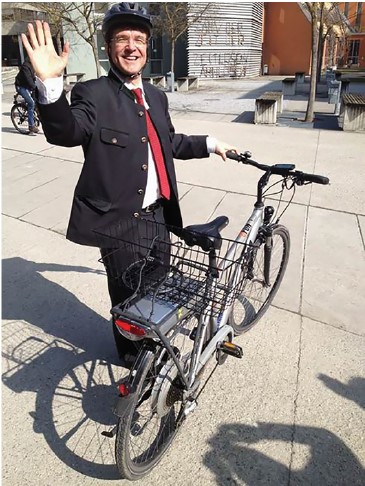
L.F.: When I observe myself, I have to affirm the approach of the Austrian neurologist, psychiatrist and Holocaust survivor Viktor E. Frankl, who focuses on the spiritual dimension of the human being. He considers man’s existential striving for meaning in life as his primary motivating force. For me I have found the meaning in life is: do good! And doing good means for me to help my neighbor.
It is as simple as that! And I do this not only through engineering projects, but also by working as a teacher.
PAC World: How do you balance your active professional life with your family life?
L.F.: With Mary I have a wonderful wife, who always keeps me grounded and makes family life simply fun! Yes, family is wonderful! I forgot to mention that we also have two great daughters, one of whom is a successful elementary school teacher – “with heart and brain.”
The other one is a biochemist and has found a way to transport the medication directly and very gently to the place of action for people with brain tumors. I admire her for her inventive power!
PAC World: What do you consider your greatest personal achievement?
L.F.: My happy and stable family on one side and my students on the other side, who are already working successfully both in Austria and internationally and who are already themselves founding their families.
PAC World: What do you like to do when you are not working?
L.F.: Exercise, nature and culture: I jog (now shorter than before), the mountains are at our doorstep, and I hope we can come back to the theatre after Corona soon!
PAC World: You travel a lot all over the world. Do you have a favorite place?
L.F.: Yes, if you asked me a long time ago as a young man about my favorite place abroad … the answer would have been something I never expected because it was beyond my horizon: I really like being in Shanghai where I have a teaching position at two universities.
But I don’t always have to travel that far, because I am happy to live in Austria as one of the most beautiful, safest, and best countries in the world, and my home town Graz offers me almost everything I could wish for.
So again: roots and wings!
PAC World: Do you have favorite music?
L.F.: Yes, but – even though I live in Austria – it is not always Mozart and Beethoven! It’s more like the Status Quo group or other groups along those lines. Yes, and the waltz music of Johann Strauss…
PAC World: Your favorite form of entertainment?
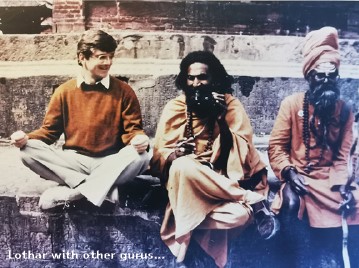
L.F.: Theatre. My dream: The Royal Shakespeare Company in Stratford upon Avon. Und there: Julius Cesar! … “Why, man, he doth bestride the narrow world like a colossus, and we petty men walk under his huge legs and peep about to find ourselves dishonorable graves.” … awesome, great – really great!!
PAC World: What is your favorite food?
L.F.: Sounds banal, but: Wiener Schnitzel!
PAC World: Do you have a motto?
L.F.: The soul feeds on what it is happy about – St. Augustine said this, and I can only confirm it.
PAC World: Is there anything you would like to say to the young PAC engineers around the world?
L.F.: Learn with joy and never forget the human dimension!
PAC World: Is there anything that we didn’t ask you that you think can help our readers better understand who you are?
L.F.: I am a religious person and see myself as part of the big picture, who is not decisive, but who can make a small difference.
PAC World: To view Dr. Fickert’s protection videos, you can go to:
https://www.youtube.com/playlist?list=PLhy2nHJciTEDlw4RE9Gk6h0BKXaQ1O3-Y or write to
lothar.fickert@tugraz.atxxxxxxx
Biography:
Lothar H. Fickert received his PhD at Vienna University of Technology. After international jobs with ELIN UNION and BROWN BOVERI in the field of power plants and electrical networks Mr. Fickert acquired system operation expertise with WIENSTROM as protection and utility systems engineer. Since 1998 he is full professor and the head of the Department for Electrical Power Systems at Graz University of Technology. He supervised or co-supervised 50 PhD theses and authored 220 technical papers. He holds 9 patents and received several honors and awards. He is specialized in electrical protection, safety and reliability, distribution of electrical energy and also in technology enhanced learning. His national and international activities comprise participation in Austrian, CENELEC, IEC, CIGRE, and CIRED organizations and committees.



